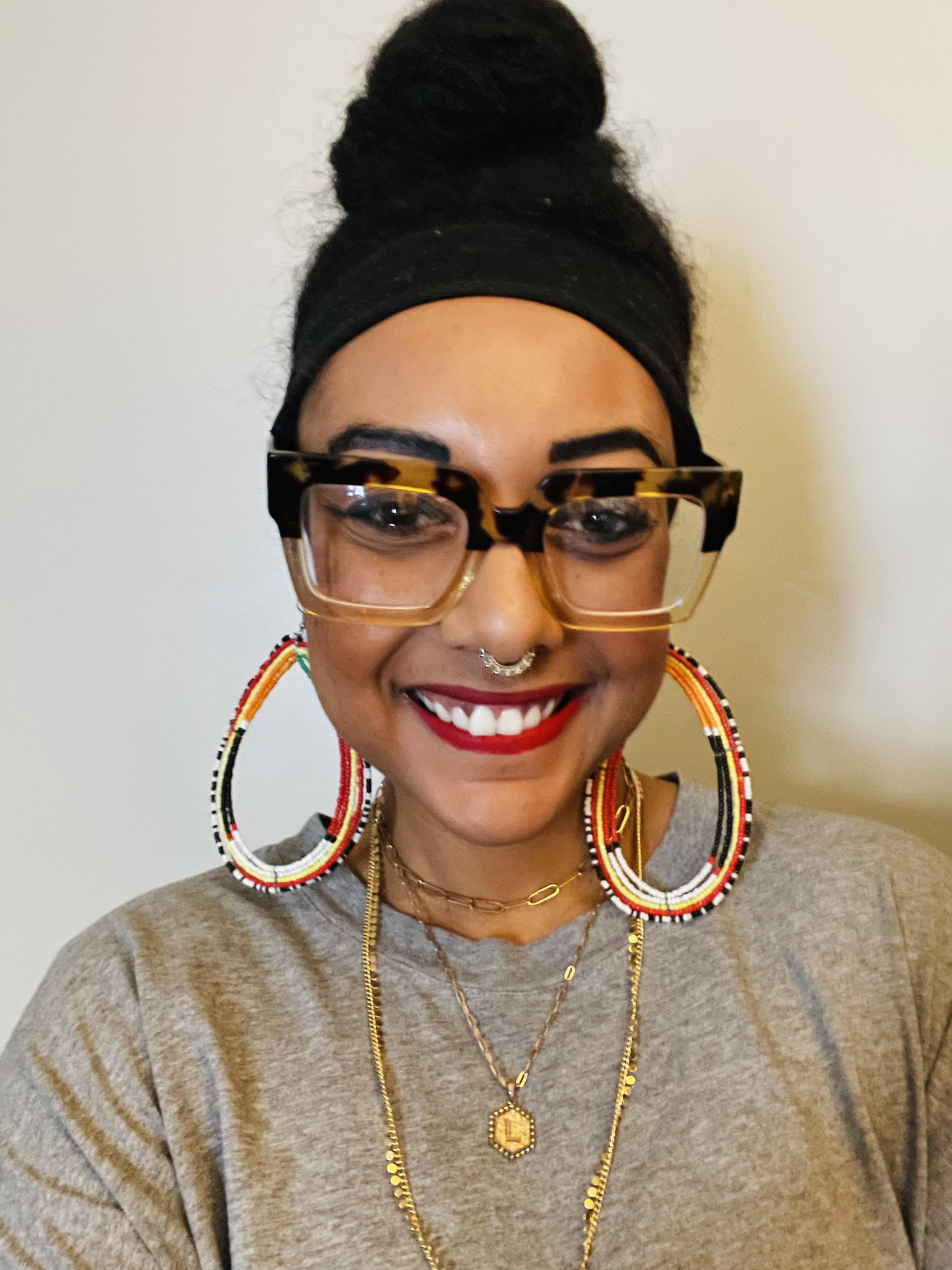
Therapy for Children of Immigrants in Kansas City, MO.
Hey! I’m Liz Davis, M.S., LMFT, LCMFT - A Second Generation Kenyan-American Counselor in Kansas City, MO.
As a Second-Generation American, do you ever feel like you’re straddling two (or more) different cultures? Does it ever feel like you never truly fit in anywhere? I want you to know that I’m here for you and I understand. As the daughter of a Kenyan immigrant, I was raised in the United States of America - Not fully identifying with Black American culture, but not being 100% Kenyan either.
As Second-Generation Americans, many of us grapple with our identities. How do we integrate them? How do we explain to people who we are and where we come from? Do we even feel like we actually know who we really are?
I’m here to help. I want to offer therapy services to other Second-Generation Americans who may be struggling with identity issues, mental health, or navigating multiple cultures while still trying to figure out who we are as individuals. If any of this resonates with you, please read on!

Second-Generation American Counseling Services in Kansas City, MO.
-

Individual Therapy
Have you ever felt misunderstood by both your parent(s) and your peers? Do you ever have people walk up to you and ask, “Where are you from?” and you don’t know how to answer? Trust me, I get it. In individual therapy, we can process through what it means to be a Second-Generation American, how to reconcile different cultural backgrounds with American socialization, and how to create a solid foundation of identity, and knowing who you truly are.
-

Couples Therapy
As a Second-Generation American, we can often feel conflicted when it comes to finding a romantic partner. Do we find someone from the same cultural background who will understand the norms and traditions? Or do we look for love regardless of race or ethnicity? It can be confusing. Especially if we’re getting pressure one way or another. I’m here to process this with you and your partner and help you navigate the challenges of cultural similarities or differences.
-

Family Therapy
Family dynamics are complex, anyway. It gets that much more challenging when our parent(s) are immigrants who may have been raised with different customs and traditions. Sometimes, the expectations from our parents may feel unfair or as if they don’t understand our own individuality, dreams, and goals. If you’re having any of these issues with your family, I want to help you navigate them. Family is so important, and I want to help yours to thrive!
You deserve a therapist who understands you from your unique cultural background. As a Second-Generation American therapist in Kansas City, it’s my honor to serve the POC in the Kansas City area. I can’t wait to work with you!

No Matter Your Ethnic Background, or Your Parents’ Country of Origin, I Want You to Feel Seen, Heard, and Understood in My Therapy Room.
Take the First Step Towards Healing Today.
Your journey towards improved mental health and well-being starts here, and Liz Davis Therapy is ready to support you. Conveniently located in the vibrant Westport neighborhood of Kansas City, MO, my office is a safe space for your personal growth and identity integration. I’ve designed and curated the office to be a cozy, warm, comfortable, and visually interesting space for my clients to enjoy. I wanted to make a space my clients would actually look forward to being in! And you’re welcome here, too! When you’re in this office, I consider it your time and your space. Let’s do some healing work, together!

It’s time to fully integrate all aspects of ourselves. You don’t have to feel alone in your experience anymore. I want to be there for you, and I want to help. You deserve to celebrate every aspect of your identity!
Why Do the Children of Immigrants Not Seek Out Therapy?
-
Many immigrant parents may not seek out mental healthcare for their children due to the persistent stigma associated with mental health issues within their respective communities. Mental health concerns are sometimes viewed as a sign of weakness, and seeking therapy may be seen as admitting vulnerability, or a failure in parenting.
-
Historical and ongoing systemic issues, such as racism and discrimination in healthcare, have led to a mistrust of the medical system, including mental healthcare. This mistrust can deter immigrant parents from seeking out mental healthcare for both themselves and their children, regardless of need.
-
Access to mental healthcare services can be limited for some children of immigrants, particularly in underserved communities where there may be a shortage of mental health professionals. Additionally, many people seek mental health professionals who reflect their own racial, cultural, or ethnic background and identity. As a second-generation American, I want to help bridge that gap and provide representation for multi-ethnic people in Kansas City.
-
A lack of awareness about the benefits of therapy, available resources, and treatment options can also play a role in the underutilization of mental health services in the second-generation American community. Sometimes, our parents, immigrants to the United States, may not know what resources are out there to help their children, whether they are struggling with anxiety, self-esteem issues, trauma, depression, or any other mental health concern.
Why do Second-Generation Americans want Ethnic Therapists?
-
Children of immigrants may prefer counselors of Color because they believe these therapists are more likely to understand their unique cultural experiences, challenges, and perspectives. Finding a therapist who is also a second-generation American can be even more challenging. I hope to provide that representation here in Kansas City.
-
Counselors of Color or who are also second-generation Americans may help reduce the stigma associated with mental health issues within our community, making individuals feel more comfortable and open to seeking therapy.
-
Many people find it easier to build trust and rapport with a therapist who shares their racial, cultural, or ethnic background. This connection can lead to more effective therapy because you don’t have to explain as many of the nuances of the culture you were raised in.
-
Children of immigrants may feel empowered and validated when working with another second-generation therapist who can relate to their experiences, potentially leading to more positive therapeutic outcomes.
-
Therapists with various racial, cultural, or ethnic backgrounds may be perceived as having greater cultural competence, which can lead to more effective therapy and a better understanding of the client's needs.
What Mental Health Issues are Most Common for Children of Immigrants?
-
Depression is a common mental health issue in general; however, it can often be linked to experiences of racism, discrimination, and socioeconomic disparities. Moreover, as the child of an immigrant, you’re often straddling two different worlds/cultures - the culture at home and the overall sociocultural environment in the United States. Trying to navigate these two, often different, environments can lead to stress which may even develop into symptoms of depression.
-
Anxiety disorders, including generalized anxiety disorder, panic attacks, and post-traumatic stress disorder, can be prevalent due to exposure to racial discrimination, socio-cultural stressors navigating our immigrant parents’ values and expectations of us, while still being immersed in the individualistic culture of the United States. It can sometimes feel like you have to self-abandon your own dreams and wishes and goals to make your parents happy or “proud”. There can also be stress and anxiety associated with feeling like you have to always listen to what your parents want you to do because of how much they sacrificed to immigrate to the United States.
-
Children of immigrants may be more likely to experience trauma-related mental health issues, such as complex trauma, resulting from exposure to bullying, discrimination, or the pressures of navigating various cultural contexts while still wanting to express yourself as an individual.
-
The stigma associated with seeking therapy can lead to additional stress and contribute to mental health challenges for children of immigrants. Maybe your parents’ country of origin does not support the pursuit of professional mental healthcare or even the use of psychological pharmaceuticals, even when there is a need for them. Knowing what you need for your own well-being but not feeling able to pursue it due to stigmas may lead to stress and other symptoms.
-
Issues related to cultural identity and acculturation can also be prominent, particularly among individuals who are navigating multiple cultural influences. How do you reconcile the values, traditions, and cultural components you were raised with while still honoring the values, traditions, and culture of American society? How to integrate multiple cultural influences is something we can definitely work through in the therapy room!














